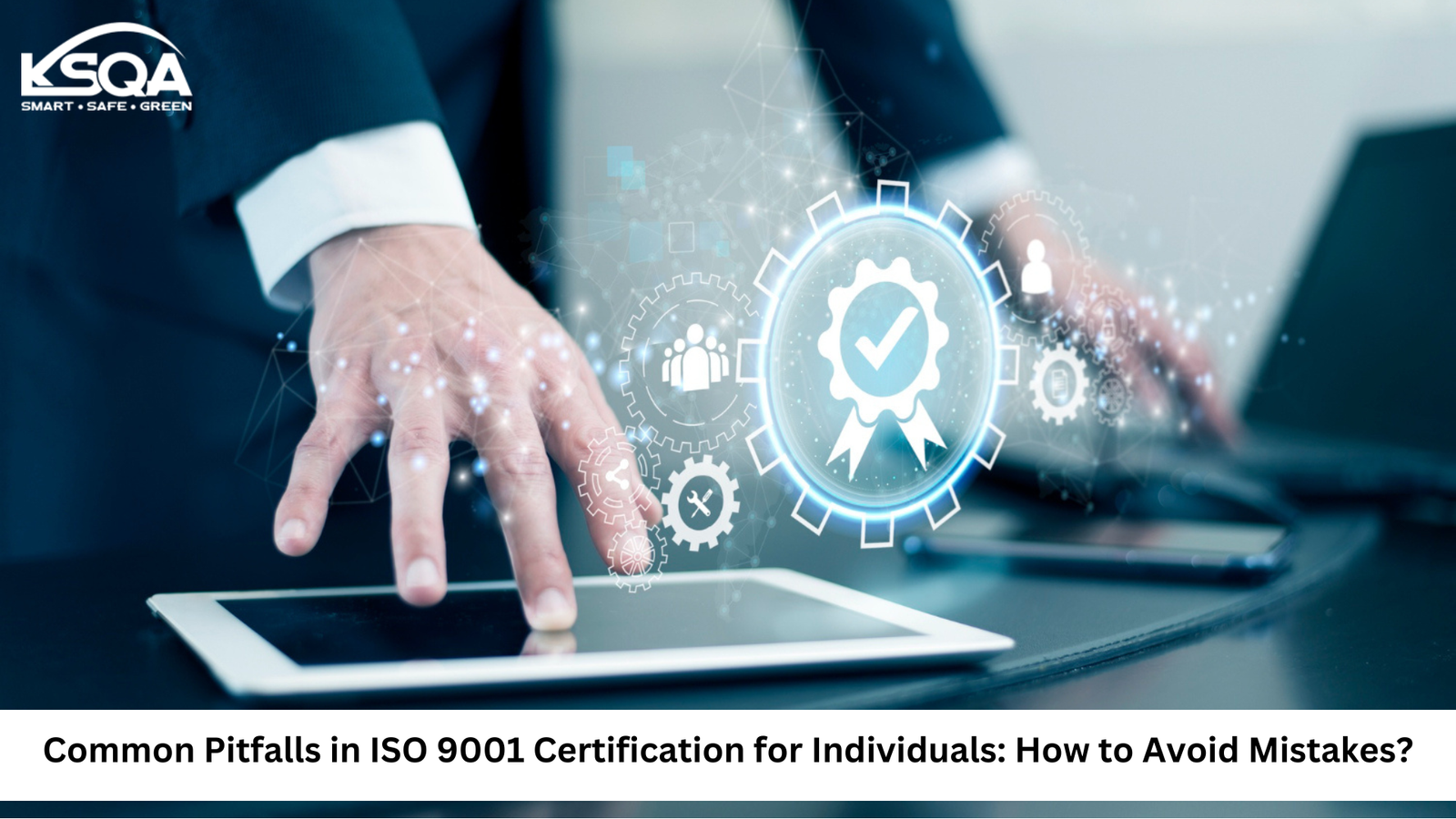The idea of an IT certification roadmap will enable individuals as well as the organizations in charge to understand the process better. The ISO standards are very important and useful as far as quality management and standardization are concerned.
The ISO 9001 principles allow an organization to optimize its production, adapt to the demands of the modern world, and achieve growth within the company.
In this blog, we will explain the nine key requirements. We will discuss how they impact IT certifications.
Understanding the 9 Essential ISO 9001 Requirements for IT Certifications
ISO 9001 outlines nine essential requirements that organizations must meet to achieve certification. These requirements help ensure that quality management systems are effective and efficient. They cover various aspects, from understanding the organization's context to making evidence-based decisions.
Meeting these requirements is crucial for maintaining high standards and continuous improvement. Let's dive into each requirement to see how it supports IT certifications.
Context of the Organization
Organizations must understand their context. This means knowing internal and external factors. It affects the quality management system. This helps in aligning business objectives. When organizations know their strengths, weaknesses, opportunities, and threats, they can plan better. Understanding context also helps in meeting stakeholder expectations.
Leadership
Leadership is vital to ISO 9001. Leaders must show commitment. They need to establish a clear vision. This drives the organization towards quality goals. Leaders must create an environment that encourages involvement. They should motivate employees to strive for quality. Strong leadership ensures everyone understands the importance of quality management.
Planning
Planning ensures that risks and opportunities are addressed. It involves setting quality objectives. These should be measurable and achievable. Proper planning aligns actions with the organization’s goals. Planning also involves considering future changes and how they might impact the organization. This helps in staying prepared and proactive.
Support
Support includes resources, competence, and awareness. Employees need proper training. They should understand their roles. Adequate resources ensure effective quality management. Organizations must provide the necessary tools and infrastructure. This includes technology, equipment, and facilities. Support also involves ensuring that communication is effective.
Operation
Operation involves managing processes effectively. It ensures that products and services meet requirements. This includes planning, control, and delivery. Effective operation ensures customer satisfaction. Organizations must manage their operations to avoid errors. This includes having clear procedures and instructions. Regular monitoring and control of operations are essential.
Performance Evaluation
Performance evaluation monitors and measures performance. It involves audits and reviews. This helps in identifying areas for improvement. Regular evaluation ensures continuous improvement. Organizations should use data and feedback to evaluate performance. This includes customer feedback, employee input, and other metrics. Regular evaluations help in making informed decisions.
Improvement
Improvement is about making things better. It involves correcting issues and enhancing processes. This ensures ongoing quality and efficiency. Continuous improvement is key to success. Organizations should encourage a culture of improvement. This includes being open to feedback and suggestions. Regularly reviewing and updating processes is essential for improvement.
Customer Focus
Customer focus is essential. Organizations must understand customer needs. They should strive to meet and exceed expectations. This builds trust and loyalty. Understanding customer needs involves regular communication and feedback. Organizations should be proactive in addressing customer concerns. Meeting and exceeding expectations ensures customer satisfaction.
Evidence-Based Decision Making
Decisions should be based on data. This involves collecting and analyzing information. Evidence-based decisions lead to better outcomes. This ensures reliability and effectiveness. Organizations should have systems for collecting and analyzing data. This includes using technology to gather accurate information. Making decisions based on evidence helps achieve quality goals.
Is It Worth Investing Time And Money In These It Certifications In 2024?
Investing in IT certifications requires time and resources. Here is a quick overview of the benefits and considerations to help you decide if it's worth it:
Investing in IT certifications has clear benefits. Improved efficiency and customer trust are major pros. However, it does require time and effort. Initial costs can be high. Ongoing training is also necessary. Overall, the benefits outweigh the challenges.
When we talk about the IT certification roadmap, we refer to a strategic plan that helps individuals and organizations navigate the process of acquiring relevant IT certifications. A competitive advantage means that organizations can stand out, which is crucial in a crowded market.
Compliance with standards ensures that organizations meet legal and regulatory requirements, avoiding penalties and improving their reputation. However, adapting to changes can be challenging. Organizations need to stay updated with new standards and practices, which requires continuous learning and adaptation.
The benefits of an IT certification make it a worthwhile investment. It helps streamline the certification process, ensures that employees have the necessary skills, and ultimately supports the organization's overall strategic goals.
By following a clear roadmap, organizations can better manage the complexities of IT certifications and maintain their competitive edge.
Conclusion
ISO 9001 requirements are essential for IT certifications. They ensure quality management and efficiency. Following an IT certification roadmap helps in meeting these standards. Investing time and money in these certifications is beneficial. Improved efficiency, customer trust, and better decision-making are some advantages. Although there are costs and training needs, the benefits make it worthwhile. In 2024, focusing on these certifications can lead to better organizational success.
Ready to take your quality management to the next level? Partner with KSQA today and unlock the path to excellence. Contact us now to discover how our expert consulting services can guide your journey towards ISO certification.

.jpg)

.jpg)


